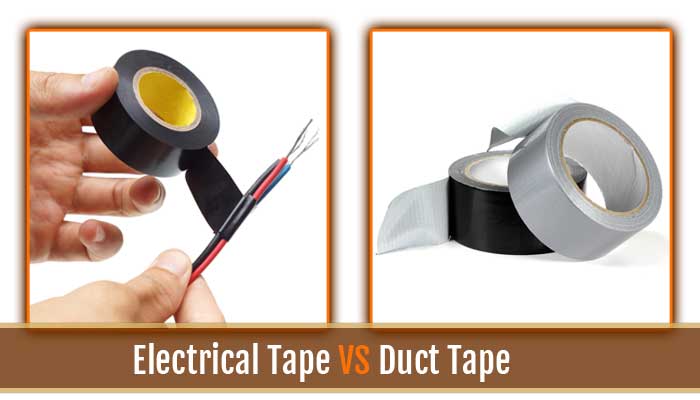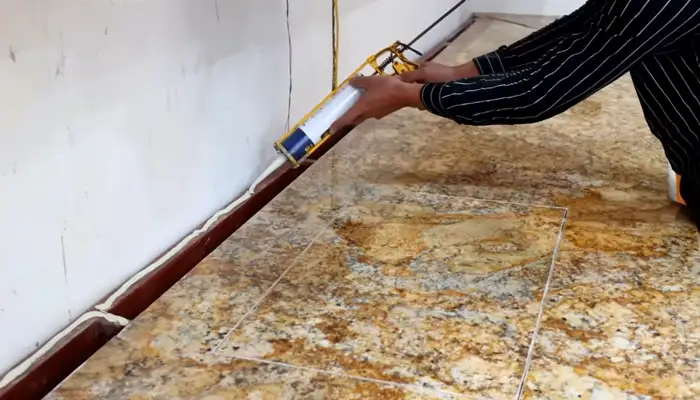WoodenuKnow.com is a participant in the Amazon Services LLC Associates Program, an affiliate advertising program designed to provide a means for sites to earn advertising fees by advertising and linking to Amazon.com and may earn from qualifying purchases.
Electrical tape and duct tape are often used interchangeably, but they have different purposes.
Electrical tapes are typically used to insulate live electrical wires, while duct tapes are mainly utilized for home repairs like sealing air leaks. It should be noted that there are many other uses for each type of tape.
Furthermore, what are the overall differences between electrical tape vs duct tape, and what are other uses for each? Continue reading if you’d like to find out!
Electrical Tape vs Duct Tape : Differences
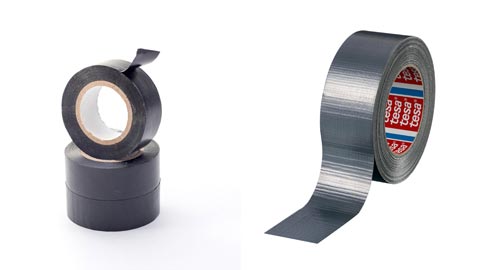
A lot of people think that electrical tape is the same thing as ducts, but they are actually different. Here are some of the key differences between electrical & duct tape:
Material
Electrical tapes made of plastic have a PVC backing and a non-corrosive rubber adhesive. Having a backing makes it able to stretch and conform to cables and wiring is designed to insulate and protect electric wiring.
Modern duct tape has been made from cotton, polyester, nylon, rayon, or fiberglass mesh fabrics to provide strength. This fabric, a very thin gauze called “scrim”, is laminated to a backing of low-density polyethylene (LDPE).
Adhesive
Electrical insulation tape has a rubber-based adhesive, which is designed to stick on for an extended period of time. Because electric tape can withstand extreme temperatures and weather changes, it will stick around for years.
Duct material has some type of acrylic or synthetic rubber-based adhesive that sticks to most surfaces and materials. Like an electrician’s tape, it will stick under most temperature conditions and is known for its durability.
Elasticity
The PVC backing on black electrical tape makes it very elastic, meaning that it can stretch to cover a variety of shapes and sizes. This is important because it can help to insulate the wire without compromising its protection.
Duct one is not as elastic as black electrical tape. It will stretch some, but not as much as electrical tape.
Thickness
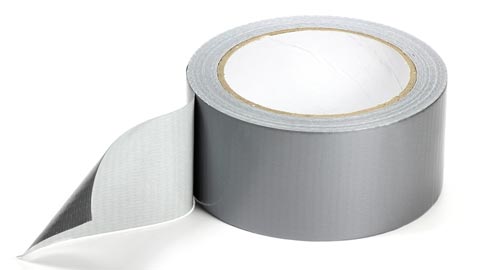
Electrical one is much thinner than duct insulation. This makes it easier to wrap around wires and other objects without making the object too bulky.
Duct one is much thicker than the electrical one. This makes it easier to cover seams and holes without too much overlap.
Durability
Electrical all other tapes are not overall durable, so they should be replaced whenever it is no longer sticky. Because the electric tape is more elastic than duct tape, it will start to deteriorate faster.
Ducts are designed to last long periods of time under outdoor conditions. Once the tape gets old, however, it will lose its adhesive quality and should be replaced.
Insulation Ability
Electrical one is designed to insulate the wires that they cover. This insulating tape protects electrical wiring by sealing out the weather, moisture, and other elements that could lead to damage or disruption in an electrical circuit.
Duck tape doesn’t offer insulation for the area it covers as electrical tape does. However, it can act as a quick fix to seal up leaks and stop air from getting in or out.
Characteristics
Here are some other characteristics of electrical & duct tape:
i) Electrical tape comes in a variety of colors, including yellow, green, and red. Duct tape is available in a variety of colors, including black, white, silver, and brown.
ii) Electrical one has a longer shelf life than the duct.
iii) Electrical tape is not as water-resistant as duck tape.
iv) You can use electric tape on a wider variety of surfaces than the duct.
v) Electrical one is not as durable as a duct.
Features

Here are some of the features of an electrical one:
- Can withstand extreme temperatures.
- A variety of colors are available
- It is a thin and flexible tape.
- The surface can be marked on it easily.
- Has high tensile strength.
- It is waterproof.
- Easy to tear by hand.
Here are some of the features of duct one:
- There are many colors to choose from.
- Has a strong adhesive.
- It is durable.
- Not so easy to tear by hand.
- It is waterproof.
- Can be used on multiple surfaces like metal, wood, and plastic.
Applications of Electrical and Duct Tape
Electrical one has the following applications:
- Insulating live electrical wires
- Electrical repairs
- Soldering
- Labeling cables
- Marking tools, etc.
Duct one has the following applications:
- Hanging posters up
- Making repairs around the house
- Taping together ripped fabric
- Sealing air leaks
- Masking off areas while painting, etc.
These are some of the most common applications of electrical & duct tape. However, there are many other uses for each type of tape that are not listed here. So, it is important to explore the possibilities before deciding on which type of tape to use for a specific job.
Similarities of Electrical Tape and Duct Tape
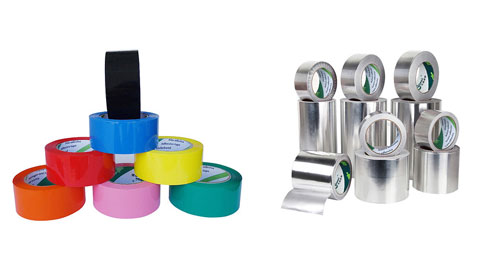
There are some similarities between electrical & duct tape. These types of tape both:
i) Come in various sizes
ii) Are used for repairs and insulating objects/surfaces, etc.
iii) Have an adhesive portion on one side and a non-adhesive portion on the other side
iv) Can be removed without leaving any residue behind.
v) Are easily available at hardware stores and most supermarkets.
Moreover, these types of tape are both affordable and long-lasting.
Tips for Use of Electrical Tape and Duct Tape
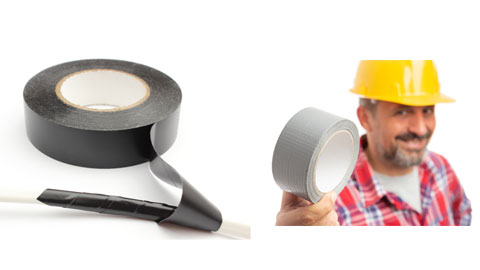
Here are some tips for using electrical & duct tape:
Electrical Tape
When using electrical one, it is important to ensure that the surface is clean and dry before applying the tape.
Make sure that the electric wiring is completely insulated and that no part of the wire is exposed.
If there is a tear in the electrical tape, it is best to replace the entire piece of tape rather than try to fix it.
Duct Tape
When using duct adhesive, make sure that the surface is clean and dry before applying the tape.
If you are using duct one for a repair, make sure that the area is free of any dust or dirt.
If the duct tape starts to come off, it is best to remove it and replace it with a new piece.
Never use duct one on electrical wiring.
It is important to remember that each type of tape has its own specific uses. So, before using either electrical or duct tape for a particular job, it is necessary to understand the characteristics and features of each type of tape.
Frequently Asked Questions
Here are some of the most commonly asked questions about the electrical & duct tape:
Can We Use Duct Tape as Electrical Tape?
No, it is not advisable to use duct tape and foil tape as electrical tape. Duct tape is not designed for electrical wiring and may cause a fire hazard.
Because of its adhesive, duct one can damage the insulation on wires and cause electrical shorts.
Can We Use Electrical Tape as Duct Tape?
Yes, but it is not advisable to use electrical tape like duct tape. Electrical tape is not as durable as duct one and may not hold up under heavy usage.
Moreover, electrical tape is not available in as many colors as duct tape.
What Can Be Used Instead of Electrical Tape?
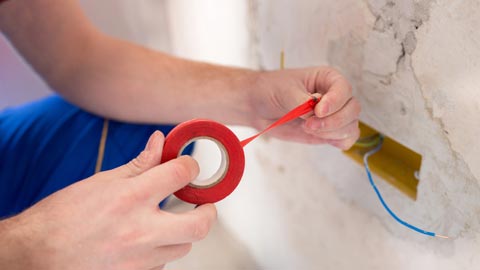
If you are looking for something that can be used instead of electrical tape, you can use wire nuts. Wire nuts are used to connect wires together by hand or with a pair of pliers.
They can be used on bare wires, spades, and terminals. They allow for easy electrical repairs during emergencies.
Is Masking Tape the Same as Electrical Tape?
No, masking tape is not the same as electrical tape. Both types of tape have their own specific uses.
Masking tape is typically used for painting and labeling while electrical tape acts are mainly utilized for electrical repairs or insulating live wires.
Is Scotch Tape Safe to Use on Electrical Wires?
No, Scotch tape is not safe to use on electrical wires. It is not designed for this purpose and may cause a fire hazard.
Does Electrical Tape Catch Fire?
Electric tape can catch fire if it is not designed for electrical wiring, but insulation tapes can become flammable if they are allowed to get too hot. If you are using electrical tape to repair an electric line, make sure that it is specifically designed for this purpose.
Most electrical tapes from reputable brands will have decent thermal properties (generally to withstand temperatures up to around 80 degrees Celsius), but there are some cheaper, unbranded tapes that may not be as effective.
When Should You Not Use Wire Nuts with Electric Tape?
Wire nuts should not be used with electric tape in the following cases:
1. If the wiring is already covered in electrical tape.
2. If there is a damaged wire that needs to be replaced.
3. If you are not comfortable working with electricity.
4. If you are unsure about the wiring or how to fix it.
Conclusion
It is necessary to know the differences between the electrical & duct tape before using them. Keeping in mind that each type of tape has its own specific uses, make sure to use the right tape for a particular job.
Also, make sure to use electrical tape or duct tape as it is designed and never attempt to use one as the other. This way, you can ensure the safety of those using the tapes. Hope this article clears all the doubts.

